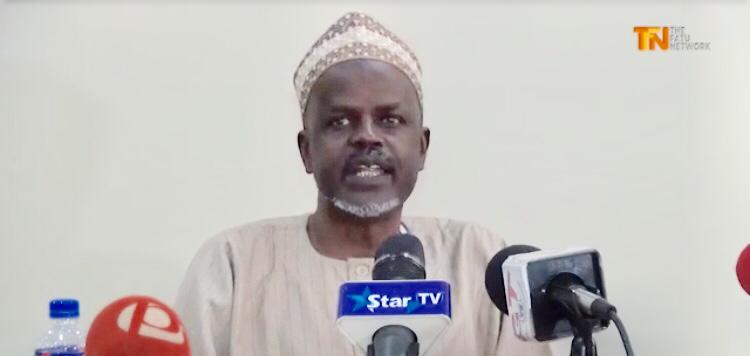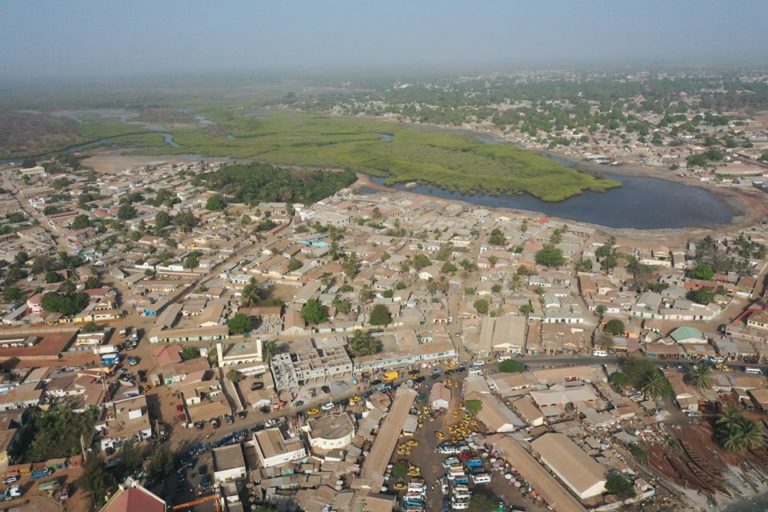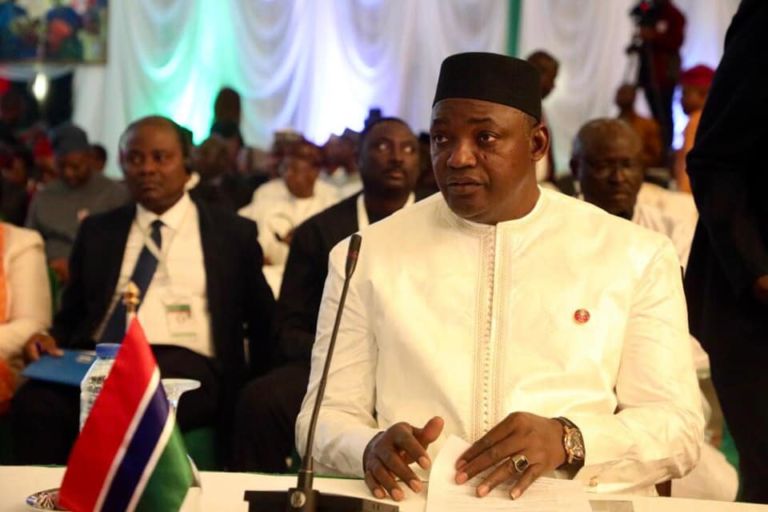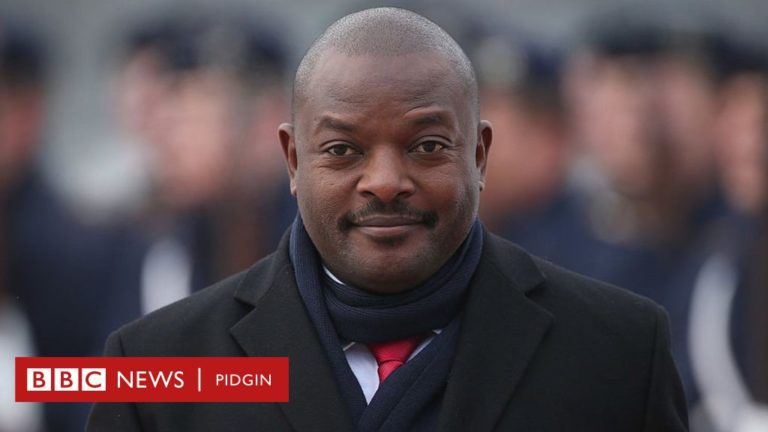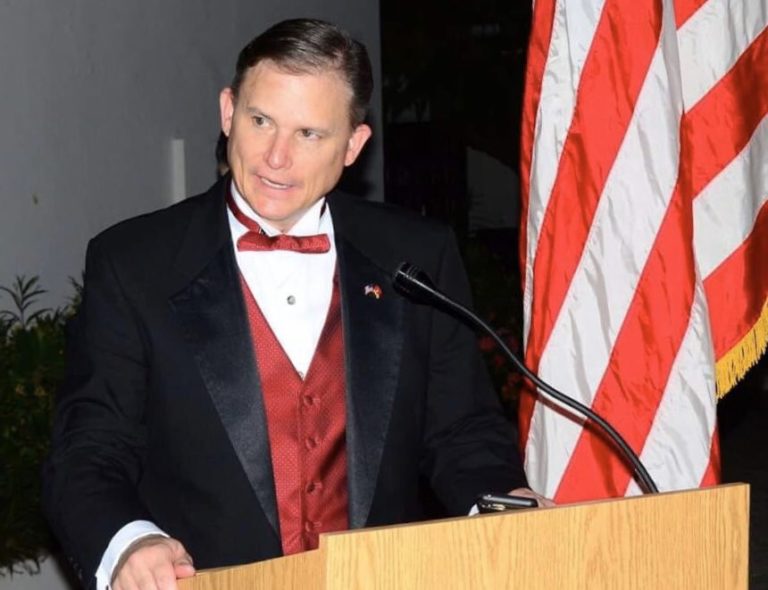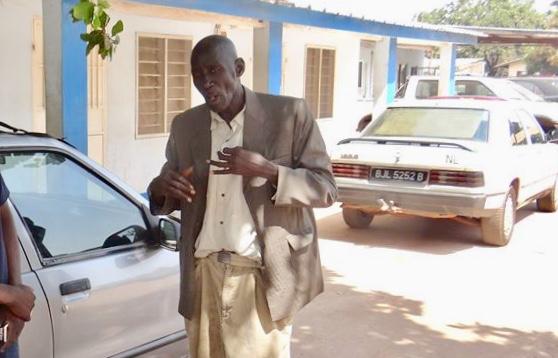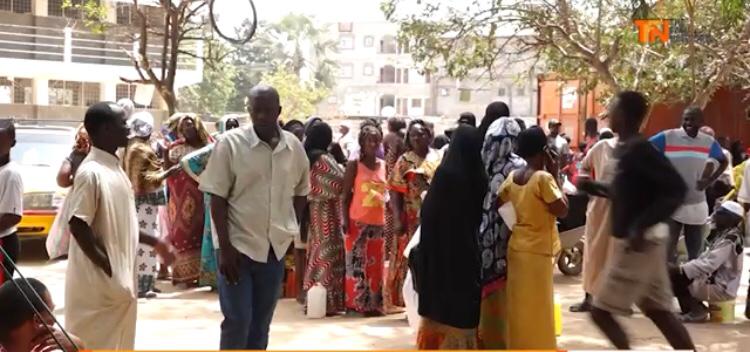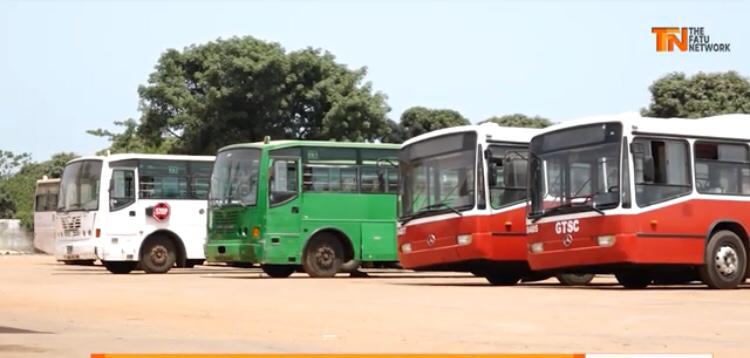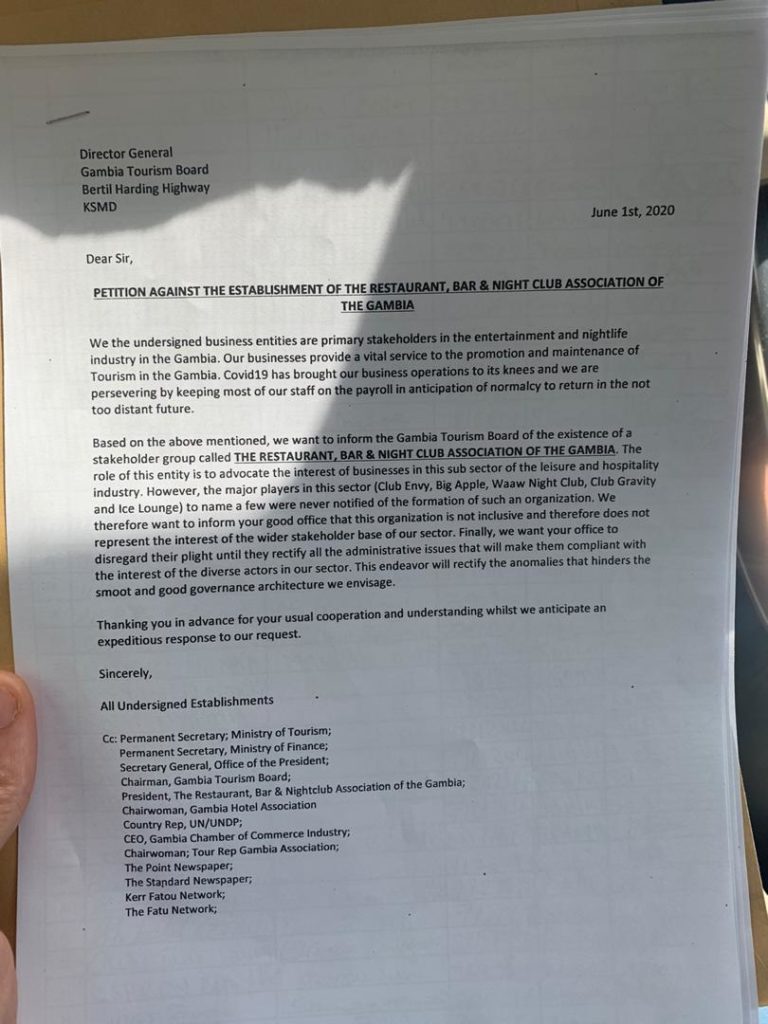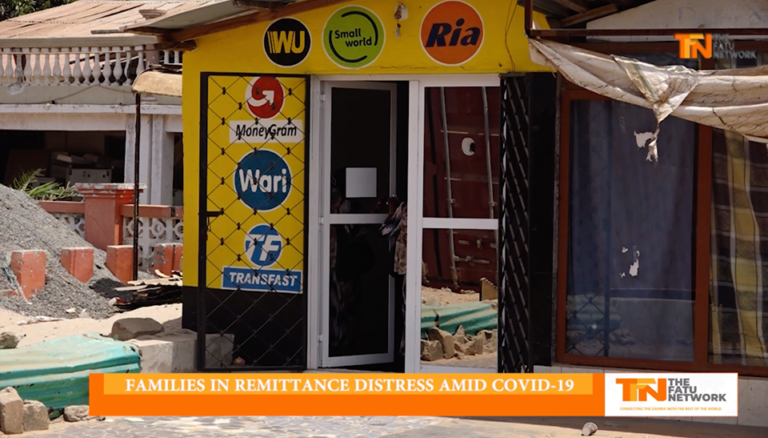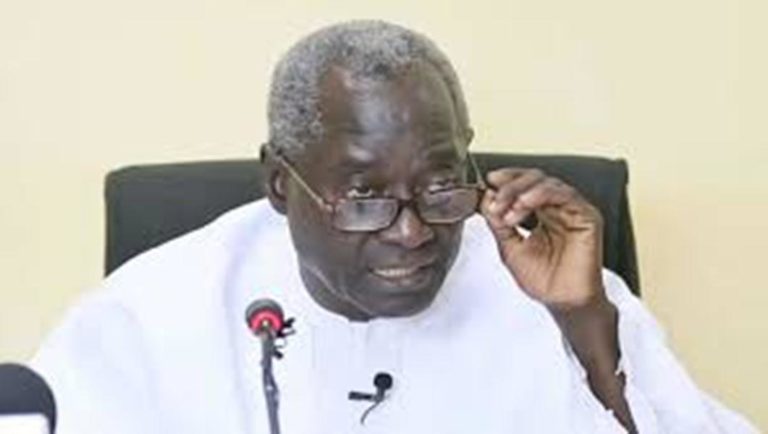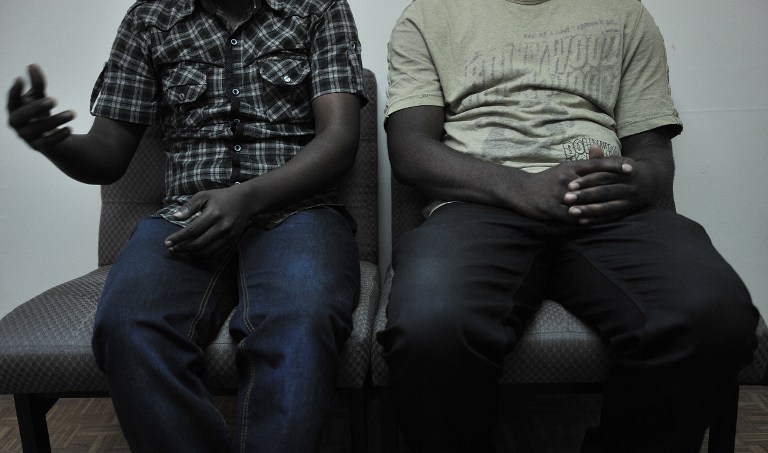MADI JOBARTEH – OPINION: State of Emergency in its right perspective
By Madi Jobarteh
The 1997 Constitution anticipates that a situation could arise that could threaten the life of the country and so it provides for a state of emergency powers to enable the Executive to manage the situation, under Section 34. Since any terrible situation could erupt at anytime the Constitution gives the power to the President to unilaterally and immediately declare a state of emergency for 7 days right away.
But the Constitution was considerate enough to say that if the National Assembly is not in session then the emergency can continue to 21 days under subsection 2. Thus the maximum time the Constitution empowers the President to make a declaration is 21 days without parliamentary approval and this is only once under any particular emergency situation.
Because a state of emergency severely affects human rights and impacts on governance processes and operations and public resources, the Constitution therefore makes necessary safeguards to prevent abuse and corruption. This is why the power to oversee and validate emergency powers is vested in the National Assembly.
Hence after 21 days, the President should come to parliament to seek approval for extension. This can go on and on so long as the President thinks there is a need for such powers to address an emergency situation as in subsection 5(a)(ii).
We have seen that the President first made a declaration on March 18 and this expired in April so that on April 3 the National Assembly approved an extension of 45 days when the President in fact wanted 90 days, as per subsection 5.
This extension ended on May 18 and even though the National Assembly was not in session they were recalled for an extraordinary sitting to consider the second extension. This request was rejected and the National Assembly went back into recess. Because of that it means the President can rely on subsection 2 again to declare a 21-day state of emergency which he did, and rightly so.
Now where this second 21 days expired the only route available to the President is to go back to that subsection 2 to present a request for extension before the National Assembly for their consideration. This means the President should have requested the Speaker to reconvene an extraordinary session as previously done to review his request for extension. This was not done.
Instead we see the President declare his own 21 days again with many people referring to subsection 6 as the legal basis for his action. This is incorrect. The President has no need for subsection 6 since that subsection only provides the opportunity for SOE declaration at anytime just that the new declaration shall go in line with the rule of law as set out in Section 34.
But since the President has already made a declaration of 21 days because National Assembly was not in session, he needed to recall them to consider his request for extension as per subsection 2. He cannot fail to do that just because there is subsection 6. That would mean that he can therefore continue to declare SOE after SOE till doomsday which effectively makes the National Assembly completely redundant and a mockery of our Constitution. This is not what subsection meant, even literally reading.
Those who rely on subsection 6 to back this declaration are therefore missing only one major point. They are reading subsection 6 in isolation when in fact subsection is only one element in a whole provision. In other words, subsection 6 is not a substantive, stand alone provision. No. It is part of Section 34 and this section has set out how a declaration could be made or extended.
If one interprets subsection 6 as giving the power to the President to make this declaration one must ask, what then happens to the 21 days that just expired? Should it be ignored? Is it unconnected to this June 10 declaration? Is it dealing with another state of emergency different from COVID 19? If so, then fine. If not, then the issue here is not subsection 6 but subsection 2 instead. This is the direction the President must head to and not towards subsection 6.
I urge the President to withdraw this current declaration and follow the Constitution to get things right.
For the Gambia Our Homeland
Breaking news: Burundi President Pierre Nkurunziza dies of ‘cardiac arrest’ at 55
By BBC
Burundi’s President Pierre Nkurunziza, aged 55, has died after suffering a cardiac arrest, the government says.
He was admitted to hospital on Saturday after feeling unwell, his condition improved but on Monday he had a cardiac arrest and efforts to revive him were unsuccessful, the government says.
Mr Nkurunziza was due to step down from the presidency in August.
In 2015, the announcement that he would run for a third term plunged the country into chaos.
On his death, he had been president for 15 years.
After a change in the constitution, he was able to run for a further term in last month’s election but he decided to retire and was to be known as the “supreme guide to patriotism”.
Playing hard to get is just as effective on men as it is on women, says new study
By DailyMail
Playing hard to get is just as effective on men as it is on women, a new study has revealed.
Research followed the behaviour of 130 single students who thought they were chatting to a potential new partner online.
During the ‘virtual dates’ it was monitored whether people were more attracted to someone who showed less interest in return.
Gurit Birnbaum – from Israel’s Interdisciplinary Center Herzliya – who conducted the study told The Times: ‘Being hard to get signals that potential partners are worth pursuing because they have other mating alternatives and therefore can limit their availability.’
‘Potential partners who use this strategy give the impression that they can afford to do so because of their high market value.’
During the study when students spoke to someone whose dating profile showed that they were ‘selective’, they were more likely to be interested in them.
A second part of the experiment – which also took place online – showed that if a person thought who they were chatting to was playing hard to get they were more likely to sign off in a way that insinuated they would want to meet again.
Concluding, Professor Birnbaum said that daters should show initial interest so they don’t make the other person feel ‘alienated’ but should also keep some cards close to their chest in the process.
She added that her previous research was contradictory, as it showed that one way to make a potential partner more interested in you would be show that you like them.
At the time she said when someone feels they have more certainty that their interests are reciprocated they will make more of an effort to see that person again.
Famously Cleopatra ignored letters from her lover Antony to make him like her more.
Similarly Elizabeth Bennett turned down Mr Darcy the first time which in turn increased her attractiveness.
Beyonce is also known to have said: ‘When you really don’t like a guy, they’re all over you and as soon as you act like you like them, they’re no longer interested.’
Pope Francis calls El Paso bishop and thanks him for showing solidarity with George Floyd protesters
A bishop in Texas received a call of support from Pope Francis after he was pictured kneeling during Black Lives Matter protests that have swept across the country following the death of George Floyd and Breonna Taylor.
Catholic Bishop Mark Seitz, of the Diocese of El Paso, was joined by 12 other priests as they knelt in silence for 8 minutes and 46 seconds – the amount of time Officer Derek Chauvin stayed on Floyd’s neck.
The group had their eyes closed as they held signs that read ‘Black Lives Matter.’ They also had on masks and held white roses in their hands.
Others at the demonstration held signs that read ‘I want to breathe.’
Two days after the clergy’s demonstration, Seitz received a call after Mass that he was not expecting.
Pope Francis was soon expressing – in Spanish – how grateful he was for Seitz’s response, CNN reports.
‘Through me, he’s expressing his unity with everyone who is willing to step out and say this needs to change,’ Seitz said. (DailyMail)
Breaking news: Government suspends ‘all sales’ of Jammeh’s assets amid appellate court misery
By Lamin Njie
The Barrow administration has halted ‘all sales’of properties stemming from the Janneh Commission’s recommendations, the ministry of justice has announced.
The ministry of justice has been busy selling assets of former President Yahya Jammeh and his associates after the Janneh commission recommended that they should be sold off.
The exercise however suffered a setback earlier this week when the Gambia Court of Appeal ruled against the government saying the Janneh Commission wasn’t an adjudicatory body. The ruling has put the Barrow government in difficult spot.
The ministry of justice reacted to the appellate court’s 1 June ruling in the M.A Kharafi case against the government on Friday saying the court did not in any way state that the Janneh Commission recommendations cannot be enforced, in an attempt to push back at suggestions it was engaged in illegality.
“The Government notes that different interpretations of the ruling are being offered by many including sections of the media,” the ministry of justice said in a statement.
It added: “The Government wishes to clarify to the general public that The Gambia Court of Appeal did not in any way state that the Janneh Commission recommendations cannot be enforced.
“Rather, in a departure from long established practice in this jurisdiction, the Court of Appeal held that an additional legal step needs to be taken by the Executive in order to execute some, and not all, of the recommendations of a commission of inquiry such as the Janneh Commission.
“Indeed, the Gambia Court of Appeal has accepted, in the said ruling, that the position arrived at by the Court in this matter is a novel one.”
The ministry of justice then announced the government is putting on hold ‘all sales’ of properties stemming from the Janneh commission’s recommendations.
“Meanwhile, consistent with the Government’s strong commitment to respect for the rule of law, all sales of properties flowing from the Janneh Commission recommendations have now been suspended in deference to the ruling of the court of appeal until a final pronouncement is made on the matter,” the ministry said.
The ministry said the government plans to seek further litigation regarding the ruling.
“The Government however disagrees with this position by the Court of Appeal and intends to further litigate this matter,” the ministry said.
Full text of Ambassador Carl Paschall’s statement on black man George Floyd’s death
The response of Americans and Gambians to the tragic death of George Floyd is profound pain and anger, as well as a pressing legitimate need to express frustration and seek truth and justice.
Healthy democracies require freedom of speech and peaceful assembly. Those who peacefully gather in our two countries and in democracies around the world to demand justice, an end to racism and discrimination, and meaningful reform are putting into action our shared values of democracy and respect for the human rights and human dignity for all.
In the words of an American hero, Rev. Martin Luther King Jr., “Injustice anywhere is a threat to justice everywhere.” But, “we must not allow our creative protest to degenerate into physical violence.”
We must hear the demands for true equality and justice, and we must all as individuals, and as persons united in our determination, act in our daily lives to put into place a world that realizes true equality and justice. That is my solemn conviction, and that of my entire team. We are committed to listening and I invite you to watch this video on the Embassy Facebook page and to leave your comments.
– Ambassador R. Carl Paschall, U.S. Embassy Banjul
Missing in Action: Jongkunda Daffeh, Gambian Philosopher, Journalist and Activist
By Hassoum Ceesay
Jongkunda Daffeh was born in 1947. In 1967, he finished at the top of his A Levels Class in Pure Maths! ‘But I had prize winning aptitude in history, literature, French, and Latin also’, he told me in an interview, a few years ago. In 1967-1968, he was pupil teacher at Armitage High School, then very prestigious.
In 1968-1969, he taught at Crab Island School, then a nursery for activists and political hotheads.
In 1969-1970, we worked as assistant reporter at Information Department, sub-editing The Gambia News Bulletin.
In late 1970, he flew to Paris, France, for further studies. In a short period of three years, Jongkunda had garnered profound experience in teaching and newspaper work. But he had gathered experience in other areas too!
He helped to mobilize Gambian youths to vote YES for the 1970 Referendum which took The Gambia into Republican status. As a member of the Ad Hoc Committee of The Gambia National Youth Council, he toured the country telling youths to end the last relict of colonial rule by voting for a Republic of The Gambia!
Therefore, thanks to Jongkunda’s efforts, The Gambia became a sovereign and free Republic. ‘I was very clear in our rallies: I said we the youths need “complete national independence”, he told me in a rare interview on 29 April 2014, at my office at the National Museum, Banjul.
But Jongkunda refused to support Jawara government’s invitation to President Senghor of Senegal to The Gambia on a State Visit. The Youth Council worked with subterranean youth groups like the Kent Street Vous and Fansoto to disrupt Senghor’s visit. Tear gas welcome the Senegal poet-president at Clifton Road, now Independence Drive.
Jongkunda worked with other activists to protest along the route of the state visitor and they succeeded in making Senghore cut short his visit. ‘Senghor was a neocolonialist. He had just put down a popular student uprising in Dakar University in 1968. He refused to allow Amiclar Cabral’s PAIGC use Senegal territory to fight for their independence against the Portuguese colonial rulers.
He was jailing Cheikh Anta Diop and other progressive Senegal leaders. So for us in the Pan Africanist youth movement in Bathurst, Senghor was an unwelcome guest’, he told me. Thanks to Jongkunda’s intrepid leadership, Senghor gave up all ideas of annexing The Gambia or taking President Jawara into the neocolonial fold.
More, in 1969, Jongkunda used his position in the Youth Council to welcome Mariam Makeba and Stokley Carmichael aka Kwame Ture, the great Black Panther and Pan Africanist, to Bathurst, The Gambia. The popular couple were given a hero’s welcome. They met Jawara, and held numerous meetings at Gambia High School Hall and Brikama Youth Centre, preaching the Black Panther ideology of Black Power.
For a short period during their visit, our The Gambia was the mecca of Pan Africansim, anti-Apartheid, Black Power and Left Wing activism against imperialists. Thanks to Jongkunda’s inimitable mobilizing skills, the Makeba-Carmichael visit became a great success.
What was also a great success were Jongkunda’s academic journeys. He read greatly and widely such that by 1972, he was in the league of great thinkers like Daniel Cohn Bendit, the German avant garde intellectual, who led the 1968 student uprising in Paris which almost brought De Gaulle’s right wing government down.
Bendit saw in Jongkunda a effervescent Marxists intellectual! From Paris, Jongkunda went to USA, where he joined the Student Non Violence Coalition(SNCC), which was fighting the kind of racial injustice that led to the murder last week by Police of the Black American, George Floyd. Jongkunda rose through the ranks of the SNCC so quickly that US Police hunted for him. They got him. That is where his mental troubles started.
Where I will end this piece is that when he was forcibly returned home in the late 1970s, he was a mental wreck by design, most likely as he had been adjudged a ‘dangerous and calculated Bolshevik mass organiser’ by the Western Intelligence agencies. They told Gambian police at the Yundum airport: ‘watch this man, he is dangerous’. Nana Grey Johnson has written eloquently on this troubling stage of Jongkunda’s life; so I need not say more.
Except to add that Jongkunda rested a while and then went back into journalism. It was a brilliant sojourn. Be it the Sun, Hibarr, Sun-Torch, Jongkunda wrote the most profound editorials in town. It was thanks to journalists like Jongkunda that the Jawara regime became respected as the champion for human rights in Africa.
Because Jongkunda and others used the liberal space The Gambian constitution afforded them to scrutinize, criticize government policies and personalities. His ilk did not wallow in cheap penmanship, or inchoate journalism. They did it maturely with decorum, firmness and stealth, sometimes.
For example, in 1986, Jongkunda went to the RVH in Banjul armed with his recorder. He had been told by a source that the jailed Gambian intellectual and politician Pap Cheyassin Secka, was sick and would be in hospital that morning.
For nearly a lustrum, Pap, a brilliant Gambian Marxist theoretician alumni of Columbia University, was held in solitary confinement at Mile Two. Gambians were curious to hear from him.
Jongkunda put his small recorder in a thermo flask and gave it to a nurse saying that it was hot water for Pap. Pap, did what he should do and returned the thermo to the nurse who gave it to the crusading journalist Jongkunda. The next day, Jongkunda wrote a five page transcript of Pap’s interview.
But it was final line of the editorial that caught my eye: ‘I know Pap is worth to The Gambia more outside of Jail than inside it. I know also that Jawara, the Fount of Mercy, knows this. I know Jawara loves The Gambia just as Pap. Pap has no place in jail. Let Pap out!’ A few years later, Jawara pardoned Pap.
My uncle and friend Jongkunda has been Missing in Action for nearly three weeks now. ‘Missing in Action’, because he remains a soldier for liberation, free thought, conscience, and humanism. I pray that he is safe and sound. I pray that he returns to family and friends soon.
Lamin J Darbo knocks lands ministry after clear-the-air news conference
By Lamin J Darbo
In an extraordinary assault on law and truth, Mr Buba Sanyang (the Permanent Secretary) at a press briefing 02 June 2020 stated the position of the Ministry of Lands (the Ministry) on demolitions: “We are planning to embark on another massive demolition in areas where lands allocated to people by government are annexed by people who have decided to build structures on them. This will come as the second phase demolition to be carried out to enable those people to acquire their lands. Government will not allow people to annex these spaces.”
Herein the lawless propensity of the Ministry!
Under the law, Government can only acquire in the public interest and lands so acquired must be used only for public purposes. The Permanent Secretary must study his critical brief.
He also asserted “… the government will not allow people to take the law into their hands by appropriating public places for their own personal use”.
It is the Government acting badly, and in complete defiance of the law.
In a bid to make more effective use of the Government megaphone, the Permanent Secretary claimed “… the Department of Physical Planning sent a letter to the alkalo of Sukuta in August 2007 informing him that the state was planning to use the land located between the Old Salagi Layout and Pateya village as a residential layout…The alkalo was advised not to process any documentation for land transactions or development for that area and that anyone who had questions should consult the department. This was made very clear to the alkalo”.
Contrary to the assertion of the Permanent Secretary, the competent lead department on land acquisition is the Department of Lands and Surveys not the Department of Physical Planning that purportedly “sent a letter to the alkalo of Sukuta in August 2007”.
As if to put the icing on the cake of state vandalism and utter lawlessness, the Permanent Secretary rather pleadingly intimated to the briefing that “section 38 of the Physical Planning and Development Control Act 1991 prohibits people building without obtaining development or building permit”, and that “… all developments without permit have consequences”.
I am aghast at the cruelty of the Ministry, at the cruelty of its constituent departments of Land and Surveys, and Physical Planning and Housing (DPPH), at their routine violations of the law, and the evasive and secretive conduct underlying their operations.
Aghast at the unwillingness of government to step in and wipe the tears of numerous ordinary citizens dispossessed of their lands by the cruel twins of land administration under this lawless and rampantly corrupt Ministry.
In my possession is documentation including a completed lease originating with the Department of Lands assigning dozens of plots, in some cases more than seventy compounds to individuals out of lands stolen from their customary owners in Salagi. They are refused clearance for development or other purposes but those who purchased these lands through dubious channels including from staff of the Ministry’s constituent departments of evil have no issues with clearance.
And all these lawlessness under purported colour of law and public authority!
Irrespective of the Permanent Secretary’s position on the State Lands Act 1991, the Land Acquisition and Compensation Act 1991, the Physical Planning and Development Control Act 1991, and their subsidiary legislations, the controlling law on land acquisitions is section 22 of the 1997 Constitution of the Republic of The Gambia (the Constitution).
Any law at variance with the Constitution is void to the extent of the inconsistency.
In particular, the lands at Brusubi, Salagi, and Nemasu in Sukuta, and those involving New Yundum, and Brufut, all in the Kombo North District of the West Coast Region, Brikama in Kombo Central, Tujereng and Tanji in the Kombo South, and Bakau in the Kanifing Municipal Council, were trespassed upon by agents, or purported agents of the Ministry on the pretext the lands concerned were confiscated and reserved by Government.
Absolutely preposterous!
Complete nonsense with no iota of truth!
As Government has no land in these areas, it cannot confiscate and reserve same.
In the event Government requires use of private land, it must follow a stipulated legal process. It is for no reason that “Protection from Deprivation of Property” is included among the fundamental freedoms and entrenched.
According to Section 22 of the Constitution:
No property of any description shall be taken possession of compulsorily, and no right over or interest in any such property shall be acquired compulsorily in any part of The Gambia, except where the following conditions are satisfied:-
- the taking of possession or acquisition is necessary in the interest of defence, public safety, public order, public morality, public health, town and country planning or the development or utilization of any property in such manner as to promote the public benefit; and
- the necessity therefor is such as to afford reasonable justification of the causing of any hardship that may result to any person having any interest in or right over the property; and
- provision is made by law to that taking of possession or acquisition:-
- for the prompt payment of adequate compensation, and
-
securing to any person having an interest in or right over the property a right of access to a court or other impartial and independent authority for the determination of his or her interest or right, the legality of the taking of possession or acquisition of the property, interest or right, and the amount of any compensation to which he or she is entitled, and for the purpose of obtaining prompt payment of that compensation.
…. -
Nothing in this section shall be construed as affecting the making or operation of any law for the compulsory taking in the public interest of any interest in or right over property, where that property interest or right is held by a body corporate which is established directly by any law and in which no moneys are provided by an Act of the National Assembly.
-
Where a compulsory acquisition of land by or on behalf of the Government involves the displacement of any inhabitants who occupy the land under customary law, the Government shall resettle the displaced inhabitants ….
-
Any such property of whatever description compulsorily taken possession of, and any interest in or right over property of any description compulsorily acquired in the public interest for a public purpose, shall be used only in the public interest or for the public purposes for which it is taken or acquired.
-
Where any such property as is referred to in subsection (5) is not used in the public interest or for the public purpose for which it was taken or acquired, the person who was the owner immediately before the compulsory taking or acquisition, as the case may be, shall be given the first option of acquiring that property, in which event he or she shall be required to refund the whole or such part of the compensation as may be agreed upon between the parties thereto; and in the absence of any such agreement such amount as shall be determined by the High Court.
Of significant import, the Government must pay adequate compensation.
I must stress that the compensation envisaged by the Constitution is not stealing lands from two people and relocating one of them in the other’s property. Where appropriate, there must be both monetary compensation and resettlement as enjoyed by those in Half die affected by the Banjul Port expansion who were monetarily compensated and settled on Bakau lands.
More fundamentally, the acquisition must be in the public interest and for a public purpose, and “any such property of whatever description compulsorily taken possession of, and any interest in or right over property of any description compulsorily acquired in the public interest for a public purpose, shall be used only in the public interest or for the public purposes for which it is taken or acquired”.
Under section 2 of the Land Acquisition and Compensation Act (LACA), “public purposes” is defined as including:-
- for exclusive Government use or for community use;
- for or in connection with sanitary improvements of any kind, including reclamations;
- for or in connection with the laying out of any new Government station or the extension or improvement of any existing Government station;
- for obtaining control over land contiguous to any port or airport;
- for obtaining control over land required for defence purposes;
- for obtaining control over land subjected to environmental protection and conservation;
- for obtaining control over land the value of which will be enhanced by the construction of any railway, road or other public works or convenience about to be undertaken or provided by the Government; and
- for planning purposes.
It is only after land is acquired from its owners by the Government in accordance with the law that it may be designated a State land. According to section 3 of LACA, “any land acquired under the provisions of this Act shall be designated as State lands and shall be administered under the provisions of the State Lands Act”.
And contrary to the assertion of the Permanent Secretary, section 4 of LACA states that “the Minister may acquire any land for a public purpose, paying therefore such consideration or compensation as may be agreed on or determined in accordance with this Act”.
It is a fact that senior employees of the Ministry’s twin departments of evil are living on lands stolen from their customary owners. It is also true that they sold many other lands across Salagi either directly or through third parties to private buyers.
A victim of land gangsterism in Sukuta was told a number of stories by agents, or purported agents of the Ministry’s twin evils. Some told him there are underground cables on his land placed there for special purposes, and others that the Government was creating a housing complex to be used as rest houses by holidaying Gambians settled abroad.
Whatever the truth of these claims, they have nothing to do with the proprietary right of the traditional owners of these ancestral Salagi lands.
The Salagi lands were stolen and not acquired by delineated legal processes.
Consequently Government cannot allocate what it does not own through legal acquisition.
Assuming these are lands which legally belong to the Government – and I reject that emphatically – the Salagi demolitions were conducted in violation of due process according to procedures laid down by DPPH itself.
The Ministry is wrong and the Permanent Secretary must reassess his position. I am in no doubt the land owners will be the ultimate winners as against the public gangsters hiding behind the façade of law.
Gambians are outraged and rightly so by the killings of George Floyd, and Lamin Sisay in the United States of America. I hope we direct part of that energy for justice to victims of Government lawlessness at home over lands in Salagi and elsewhere.
Halifa Sallah says George Floyd is sacrificial lamb for USA to repent
Halifa Sallah has said the George Floyd is the ‘sacrificial lamb’ for America to ‘repent’ and ‘heal’.
Below is the Serrekunda MP’s statement under the title ‘A Nation Caged and on Fire Cannot be at Peace with Itself to Prosper; George Floyd is the Sacrificial Lamb for the USA to Repent and Heal’.
When the worst is seen by a people, be rest assured that better times are around the corner, waiting for those who hate to see the worst to take the measured steps to address the challenges of destiny. Each has a duty to discharge our contract with destiny. The options are two. There is no middle road.
We will either live in the hell or the heaven of our own creation. This is the verdict of history and common sense and it is incontrovertible.
This is why COVID-19 is caging the USA and prejudice is burning it into ashes. History has its turns, convulsions and convolutions, its trials and tribulations but it also has its confessions, concessions and conciliations, its dialogue and healing. Hope always dawns when it is almost lost. The might of hope, unity and awareness is much more powerful than the strong current of hopelessness, antipathy and ignorance. The wisdom of the ages teaches that; behind the dark clouds, the glorious sunlight is always waiting to shine and it will shine someday. That is inevitable!
The convergence of the whole world for justice because of one incident is a glimmer of hope for a better world. Millions around the world became tormented as they saw a handcuffed human being lying on his side, unable to pose any threat to any officer, being subjected to excruciating pain by putting the whole weight of a well-built police officer on his neck, with a knee strategically placed on his jugular veins which ferries blood from the head to the heart thus depriving him of breath by relying on his weakest point to rip his lungs to pieces and send him to his grave.
What type of order will allow the transformation of a protector of life and property into a murderer? What property is more precious than personal freedom? It was not difficult to conclude that brother George Floyd was sent to his death without due process because of pride and prejudice that nourished contempt and ill will in the heart of the law enforcement officer. Where law enforcers become law breakers, the law is left without guards and fences. Society becomes a jungle where the fittest survive.
Burning, stoning and looting may continue to vent frustration until it becomes clear that such actions are not sustainable and cannot proffer solutions to the anguish that prejudice, inhumane treatment, alienation and injustice inflict on others.
It is therefore our duty not to provide the unjust with the excuse to legitimise the shooting and torturing of the weak because of their colour by exceeding the bounds of peaceful protest. Those who shook the USA to its knees did so in the 60s through the might of civic awareness and peaceful protest.
The belligerent and incorrigible hate mongers became consumed by the hell fire they lit and lost control of power. The peacemakers who took charge of governance assumed their responsibilities in separating the grain from the chaff, apologised for wrong doing while promising justice to the aggrieved families to cool the last embers of hate and revenge and allow sanity to be restored.
Hence, as we seek for a solution in these tumultuous times, the multitude should leave the street to COVID-19 and return to their separate chambers to speak to themselves in quietude and ask this fundamental unanswered question:
How can there be peace and tranquility, law and order without justice and respect for human rights irrespective of colour or creed?
George Floyd is posing this question for everyone in the USA to answer, each morning when starting a new day until a new USA is born. The USA is now crying for New Citizens and new leadership that could meet the expectations of those new citizens. Destiny makes the USA the nexus of world peoples and civilization.
The Union was founded and built from the blood and sweat of democrats fighting for a sovereign Republic in 1776, abolitionists fighting against those who defied the principle of sovereign equality of human beings, by trying to enslave other human beings, anti secessionists, 170, 000 of whom were Afro-American soldiers who defied disease and death to keep the nation together.
The wealth of the USA cannot be separated from the toil and moil of the enslaved, the indentured servants, the workers, the trillions in trade and investment in USA Bonds from all over the world. The USA is a corpus of world civilization without distinction to colour or nationality.
That is why when the USA is caged, the whole world feels the agony. When it is in flames, the whole world feels the heat. This is why the USA deserves a world class leadership in order to send the torch of justice, love, peace and harmony all over the globe where their ancestors hailed either by force against their will or due to flight from injustice perpetrated against them.
To all those who empathize with George Floyd, I have this to say: He is the sacrificial lamb of history, heralding the end of the days of prejudice based on colour.
Today, each person of African descent in particular or of any descent in general, whether in the USA, the Caribbean, Africa or any where in the globe should dispose of any inferiority complex that may have plagued one’s mind by prejudice and ignorance of one’s embodiment of inalienable dignity and self-worth.
Each must recognize that inferiority complex is a by product of self-hate and self-degradation. It leads one to engage in self-pity because of the inhumanity of others or become inhumane to react to the inhumanity of others. Instead of empathy, we should all celebrate the birth of a new day of awakening, a day when we will mutually commit ourselves to honour with total disregard that there is a white race or black race or red race or yellow race. We must now trumpet from mountain tops for the whole world to hear without any ambiguity or dissonance that there is only one race of people in the world – The Human race.
To look at the sun and say it is the moon is a symptom of mental ill health. To look at a person of African descent and say he or she is not a part of the human race is a symptom of mental ill health. All peoples, irrespective of colour, nationality, gender or place of origin are members of the human race who are endowed with similar capacity to think, invent and build a civilisation they would be proud to bequeath to their children and children’s children (ad infinitum), to eternity.
We must take this opportunity today to declare in George Floyd’s honour that his humanity and standing as a member of the human race stand shoulder high above his murderer. We must affirm that the human race comprises only two types of human beings; the human and the inhumane, the just and the unjust. We must reveal our discovery in his memory that any human being who looks at another human being and display signs of fear because of his or her colour is suffering from neurosis and needs treatment for his or her illness. This is the scientific truth.
It goes without saying that, any person who becomes obsessed with fear, hatred, pride and prejudice to the point of enjoying the perpetration of violence against another because of the colour of his or her skin must be seen to be suffering from psychosis. That is the unalloyed scientific truth. History has placed on the shoulders of all humane and just citizens of the USA in particular and the world over to begin the battle to screen and treat the ill and the unjust in our countries so as to ensure healing and peaceful coexistence. They must no longer be given the credit to think that they are displaying superiority over others by displaying contempt and hate.
The world must put an end to colour prejudice by exposing its source.
Those suffering from colour neurosis and psychosis must be identified and cured. The more they are allowed to increase and go on the rampage the more we have a society of psychopaths behaving like chosen people.
Then hell fire will be our home on this earth for eternity. History has put the salvation of the world in the hands of those who have suffered historical injustice the most, that is still unabated. However, history has rewarded the African people with land, human, material and financial resources in the USA, the Caribbean and Africa due to the vicissitude of destiny. We must now convert this strategic advantage into asset to save the world from the hatred of people that have lost all sense of obligation to humanity.
Once they learn to forgive after all the psychopaths are restrained and humanised, the twenty first century would evolve a human civilization that would guarantee peace on earth and good neighborliness throughout the world. All humane persons in the world must unite to save humanity from the insanity of the inhumane and the unjust.
This is the clarion call of destiny. We must answer to this call or face the abominable peril and the unaffordable cost of chaos, licentiousness and impunity.
MADI JOBARTEH – COMMENTARY: US Police Brutality has arrived on Gambian Shores! Time to Act.
By Madi Jobarteh
We are deeply saddened at the news of the shooting to death of a Gambian youth Momodou Lamin Sisay today by the US Police even as we continue to grieve the senseless, deliberate and racist murder of George Floyd by the same US Police. As usual the US Police has come up with their narrative that they came under fire from Momodou and so in the exchange our boy was killed. False!
I reject this narrative 100% which is nothing but the same typical pattern of fabrications that the US Police are notorious of spreading anytime they kill Africans. Once again they victimize the victim! For that matter we demand the release of the police videos to show exactly what happened to Momodou.
At this moment, Gambian activists in the United States are actively engaged on this matter. They are seeking the support of lawyers to ask the courts to make the police release their videos publicly as well as have human rights organizations raise the issue across the nation.
In the Gambia let us raise the issue as well. Let us demand the Gambia Government to summon the Ambassador of the United States to State House to make it clear to him in no uncertain terms the painful grieve and deep concern of the people and Government of the Gambia for the killing of Momodou.
Let our Government make it clear to the US Government our uncompromising stance for justice for Momodou and George Floyd and all those victims of US Police Brutality. Let our Government make it clear to the US Government’s representative in Banjul that we will not tolerate Gambians and African Americans being killed by the US Police with impunity.
Furthermore, let us make our political parties to speak up. America is NOT the Almighty. Let us reject that sense of helplessness and small and poor nation mentality that America is a huge and invincible super power that we cannot do anything about. Let all political parties in Africa begin to act like governments and leaders and take a proactive and definitive stance on fundamental issues affecting African lives across the world.
Let all governments in Africa stand up and speak with one voice that the blatant, indiscriminately and racist attack on our kith and kin in the United States will never go unnoticed and unchecked.
In the name of Kunta Kinteh and Olaudah Equiano and millions of our ancestors of blessed memory who were forcefully removed from Africa to be enslaved in the Americas, let us defend our brothers and sisters in South American, Latin America, Mexico, United States and Canada. We have a duty to stand for them!
Finally, be informed that there are efforts being planned right now to stage a peaceful protest against US Police Brutality against Blacks in America in front of the US Embassy on Kairaba Avenue. You shall be informed as we gather news and progress.
Stand up for the rights and dignity of your people. Today!
Africans for Africans Worldwide!
Minneapolis police officer Derek Chauvin is charged with the murder and manslaughter of George Floyd
Minneapolis police officer Derek Chauvin has been taken into custody over the death of black man George Floyd, four days after he was seen kneeling on his neck in a video of his arrest that has sparked violent protests across the country.
The 44-year-old white cop was arrested by state investigators on Friday afternoon, Public Safety Commissioner John Harrington announced.
Chauvin was one of four officers fired over Floyd’s death earlier this week however, Harrington did not provide details on the other three cops.
The state attorney who would oversee any prosecution on state charges, whose home was also the site of protests, is scheduled to provide an update later Friday.
The arrest comes after days of riots and unrest across Minneapolis – and several states – demanding justice for 46-year-old Floyd. (DailyMail)
I am the Captain of my Soul, Master of my Fate
By Baboucarr Camara
SEOUL – It’s 3:45 a.m. here; most people are in bed. It’s nine hours behind in The Gambia, precisely 6:45 p.m. Instead of getting enough sleep to re-energize my batteries for a 9:00 a.m. class presentation on Zoom, I’m here sharing the inspirational story of how I transformed from a morbidly-obese person to a fine-looking young man in less than seven months.
It was May 5, 2020, and more than four hours since a popular Gambian lifestyle platform WhatsOnGambia shared two pictures of me, taken eight months apart. On its Facebook page, they dropped the bombshell with the simple caption: What an incredible weight-loss transformation! Congratulations Baboucarr Camara!
Within minutes, it generated all sorts of expertise and forensic analysis. While many were left in awe with what I did, an equal number still doubted the story. Bang, dropped a private message from an old acquaintance: “How did that just happened mate?” he asked. “How did you do it? Please help me, you’ve inspired me and before December I must win my battle with overweight.”
Within 24 hours, I moved from a little over 4000 friends to less than a hundred of reaching my maximum 5000 limit. That gave me both a sense of joy and fulfillment, but even more, the desire to help Gambians fight obesity and promote a healthy lifestyle. That is Babou at his passionate best.
Ever since I could remember, sports have been my life. I started as an observer, then I became an analyzer at high school, then a commentator, later an employed journalist, to a full blown addict, landing me my current job as a sports administrator. While most of my pals were busy riding their bikes and playing the games, I was trying to perfect my knowledge of them.
Most would turn to me for opinion whenever they argue about sports, football in particular. They would usually drop the phrase, ‘Baboucarr said it.’ I’m their one reliable arbiter of all things sports. Those folks were not surprised to see what sports has given me today. They were certain I was destined for greatness and it was a matter of when not if.
However, it took me until after my 36th birthday to find my sense of being as someone who truly belongs in a world of sports. Performing the act was of little or no importance to me. The camaraderie and the togetherness, especially during the matches were what mattered to me. My phones would be inundated with calls and messages from family and friends, especially during the summer European football transfer windows, as we share opinions even though we are miles apart.
The competitive part didn’t bother me at all. Of course, having a healthy competition is not a bad thing. But for Babou, my greatest competition is with myself and this has helped me to become a better person in every aspect of my life. So practicing sports was not for me. Sure, I thought. A sedentary lifestyle perfectly suited me for as long as I remain relevant to those who rely upon my expert opinion and skills in delivering the goods. After all, their nice comments massaged my ego.That concept has been banished to history. Today, I can’t imagine my life without sports. I can’t even begin to imagine the thought of physical inactivity for more than two days in a given week. Sports has helped me to find my true identity. I’ve never been more confident in my looks and abilities before. Put simply, me and sports are intertwined.
Beyond my wildest imagination, I now serve as both a fitness adviser and diet consultant to many Gambians, less than a year removed from when I mistook obesity to be a sign of good living. The daily compliments I continue to receive for waking up a sleeping society and serving as an inspiration to many people who now look up to me is indeed heartwarming and at the same time challenging.
It drives me to never get off the track and be the best in whatever goals that I’ve set for myself. That competitive drive pushes me to be at the best of my abilities in even the smallest and mundane areas of my life. I challenge myself to return home with a completely ripped-off body by doing tedious abdominal exercises six days a week, be at my best academically and dedicate my life to spearhead the campaign for others to be in control of their lives as well.
Through sports, I’ve also come to learn something fundamentally very important; no matter how talented you are, you are not always going to be the best. You have to work hard to get what you want. No matter what, you will mess up and someone is going to beat the sh***t out of you. When you put in the time and effort, it pays off. You will also improve and every time and effort becomes worth every second.
Baboucarr Camara is a former Daily Observer Editor. He’s the Director of Marketing & Communications, The Gambia Football Federation. He holds a Bachelor’s in Journalism and is a Master’s Degree candidate in Global Sports Management at the Seoul National University.
Break the “Yaabaateh”: That EU Campaign is Immoral
The Gambia is a land of pristine beauty neatly carved into two for a zigzagging river pouring crystal clear water from the Atlantic Ocean. A nation and region of people and places and cultures under Almighty God, pivotal to world events as humanity tethers towards the unknown.
The article was occasioned in response to press reports about the European Union (EU) scheme to manufacture homosexuality in the country. The Gambia, where a closer look unearths centuries old kingships and legacies under the banner of Islamic governorship.
But has the triumphs of fearless warriors as Foday Sillah, Maba Jahou, Sundiata Keita ever reached you?! How about extraordinary stories in Sheikh Omar Futi Tall, Sheikh Amadou (Touba) Bamba, Sheikh Ibrahima Baye Niasse, Sheikh Seedy Lamin, and many such blessings? And what of the rise of Islamic scholarship in later years as, Oustaz Omar Bun Jeng, Oustaz Barra Kanteh, among countless witness ‘colossal’ [sic].
The LGBT thing is “heresy”, unnatural to be exact! Condemned in Islam for an accelerant that ire the wrath of Almighty God. It breeds nothing good, except for destruction – thus, a duty of all of us to educate and protect our children & young people against deviant understandings.
It has to be emphasized that Islam has laws and set limits, intertwined into our every day life. Even before the advent of constitutional democracies, Muslim societies throughout Arabia & Africa erred on righteousness, as civility define social relations.
In Surah “Hud” of the Glorious Quran, Almighty God relates the story of the people of Prophet Lut ( Lot) who transgressed far beyond for the very abominable. Punishment came down for their destruction.
The Holy Bible’s position on the subject as far as Christianity is concerned is that “homosexuality is forbidden by God!”(Leviticus). It is a sin in all the Semitic Books – so why would mortal man ever think resourceful enough to change the Word of Almighty God for his barbaric delinquencies?!
The issue of human rights often comes up, but human rights by design is subjective. It is a social construct filled with desires and wish list tick-boxes. See how the West is filled with single women desiring for men. Surely, the solution is for man to marry more than one wife as eloquently laid down. But Muslims aren’t going around looking to impose will – double standards is the height of hypocrisy.
The narrative on human rights has been weaponized nowadays. For by choosing to impose such an flawed seed as LGBT issue upon a high cultured people and region as [Sene]Gambia, the EU has overstepped acceptable bounds on protocol. Any such directives tied to EU foreign policy and that of the United States does NOT make it any right, nor might. People need recognize Sub-Saharan Africa is quite unique, a special case as that: Had the ambassador better advised, or cared to trace through time on the country’s historical mat, he might have acted wise.
Making enemies of friendly states only loses you ground to China across Africa. A sensible advice is take note of an sovereign people charting their own course without outside interference. Contrarian to which you stand to encroach – and oppress – and violate – country specific laws. The statute the Ambassador was quoted as saying is lame, weakened on account of non-interference in each other’s domestic affairs [Vienna Convention on diplomatic relations].
The Gambia government shall not allow nor legislate that which goes contrary to Devine Scriptures, Quran and Bible respectively.
After all, democracy only came to administer colonial borders, and with it, invent the corruption problem.
The usual channels of cooperation will need to address the unease; EU has to recognise The Gambia is a population highly devoted to one True God – Whose Command in the Glorious Scriptures transcends all other laws and pronouncements. For, whenever etiquettes on social conduct come into conflict with external accords, [Sene]Gambia values always take precedence!!!
It is an insult on the conscience of Gambians told to debate that we already knew to be deeply immoral; a deviant corrupted seed to Muslims and Christians alike. I call on the administration to protect a solid moral base in society given trends in the world. While this does NOT necessarily mean religious intrusion into politics, it sure damn well means stepping in to regulate against harm imposing cultures seen to pose threat to the country’s religious-cultural dynamic.
The Tourism ministry need speed up efforts to attract family-type visitors as with the Jawara Era. For it is vital to address the scourge of loose ‘items’ frequenting the shores of ‘Kololi’ for a bit of this & that: Learn from Egypt, enforce stringent laws to arrest and prosecute paedophiles feigning on helpless children. Govt and the police are held responsible for failing to prosecute child abusers; Impose mandatory sex-offenders register – be it diplomat, tourist, or resident!
The EU need recognize that raising the issue garners anger, offensive to the population. To drape the country’s flag in homosexual colours was provocative for which it knew. Ambassador Lajos ought summoned to the foreign ministry in Banjul to explain. And with this publication, I hereby put government on notice for a population dead set against it, with that, amplify the voices of millions of peoples of the region.
Gibril Saine

